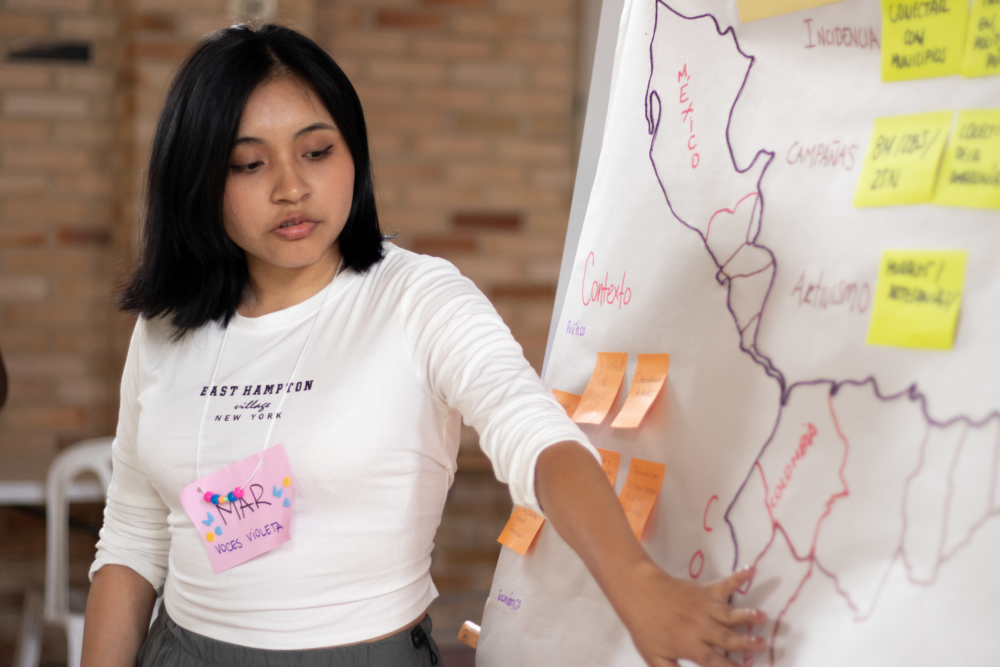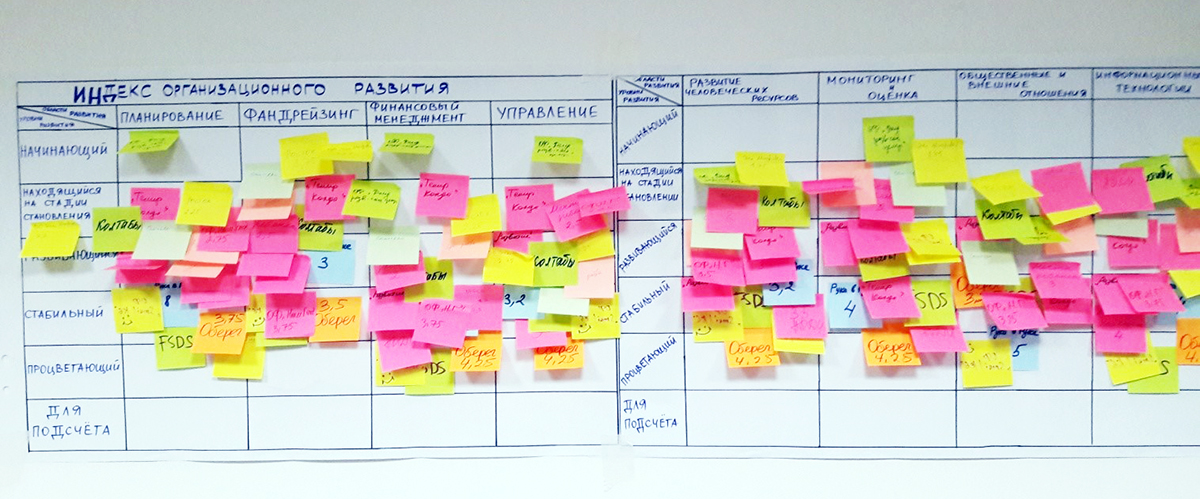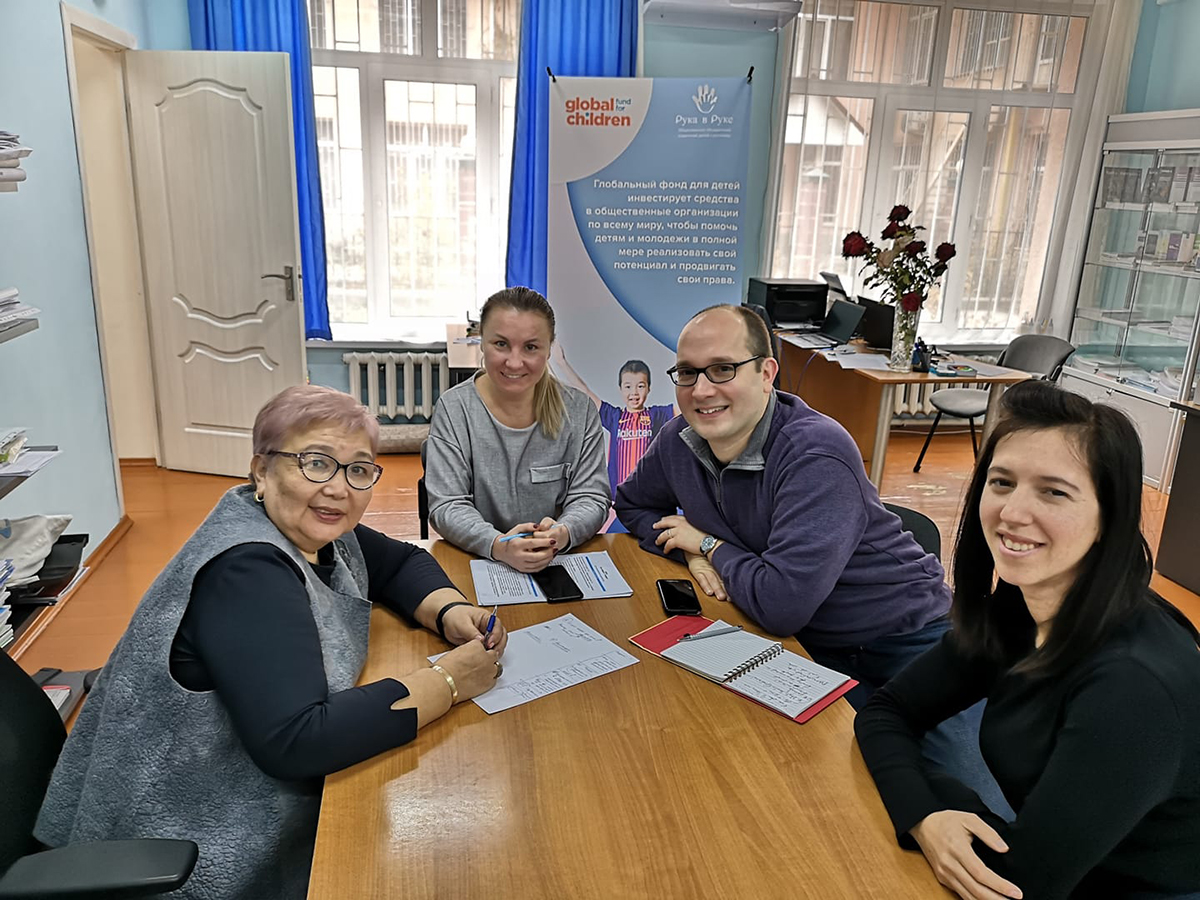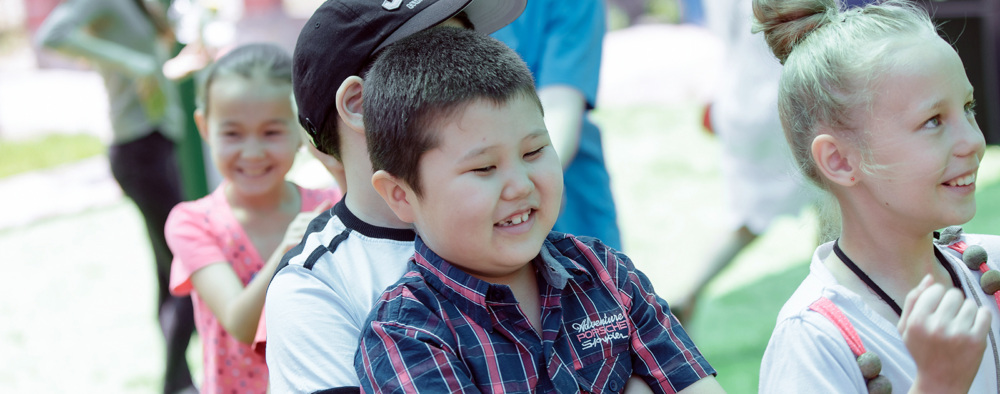
Poder da juventude
Educação, Poder da juventude
With support from GFC, our partner Hand in Hand recently organized a two-day convening in Bishkek, Kyrgyzstan, for nearly 20 NGOs. Hand in Hand’s fellow GFC partners National Federation of Female Communities of Kyrgyzstan e Our Voice were among the participants.
Before the convening, which took place October 29-30, Hand in Hand translated GFC’s ten-page Organizational Capacity Index (OCI) into Russian. This index – a self-assessment tool designed to help NGOs evaluate their organizational strengths and weaknesses – was used as the basis for the agenda of one of the two days.
All 20 organizations, including Hand in Hand, completed each of the eight categories of organizational competencies – from human resources, to fundraising, to information technology.
[image_caption caption=”Notes from the organizational capacity index session. ” float=””]

[/imagem_legenda]
When reviewing the results of the assessment, one of the things that surprised the Hand in Hand senior leaders is that younger staff rated the organization slightly lower in some categories than the senior staff, which showed that newer or junior staff were not necessarily aware of all of Hand in Hand’s organizational structures. This convinced the senior staff that they need to do a better job of on-boarding and updating all staff about Hand in Hand’s organizational structures.
This attitude expressed by Hand in Hand’s senior leaders did not surprise me.
One of the things I have always admired about Hand in Hand, Kyrgyzstan’s first NGO dedicated entirely to serving autistic children and their families, is the organization’s devotion to constant introspection and the staff’s eagerness to improve themselves as a team.
Hand in Hand is a remarkable example of a “learning” NGO. It was only a few months ago that I told them about the opportunity to develop a convening with other GFC partners and Kyrgyz NGOs. Within a few weeks, they had proposed a rough agenda and an amount for a grant to help cover the costs of the convening. Within a few months, they had hired organizational development experts and invited and arranged for 20 Kyrgyz NGOs to come together for a two-day event – all with a small grant and based on their initiative.
[image_caption caption=”Joe Bednarek meets with Hand in Hand’s board Chair and staff. ” float=””]

[/imagem_legenda]
For Zhyldyz Sadykova, one of Hand in Hand’s founders and Chair of their board, this openness to innovate is central to Hand in Hand. She told me, “If we don’t learn, we don’t grow.”
For Zhyldyz, learning is one of Hand in Hand’s core organizational values. One of the many things that makes Hand in Hand special is that they have assessed their organizational values and use them in every aspect of the organization, including hiring, program delivery, and teambuilding.
For Meerim Ismanova, Project Manager at Hand in Hand, the organization’s success as a learning organization comes from the high level of professionalism of the staff. “Above all, the staff as individuals all want to help people,” Meerim said. “And they are also not satisfied with ‘just OK’ work. They always want to improve it.”
Top photo: Children play at a family-friendly event to raise awareness about rights and services for children with autism. © Hand in Hand
